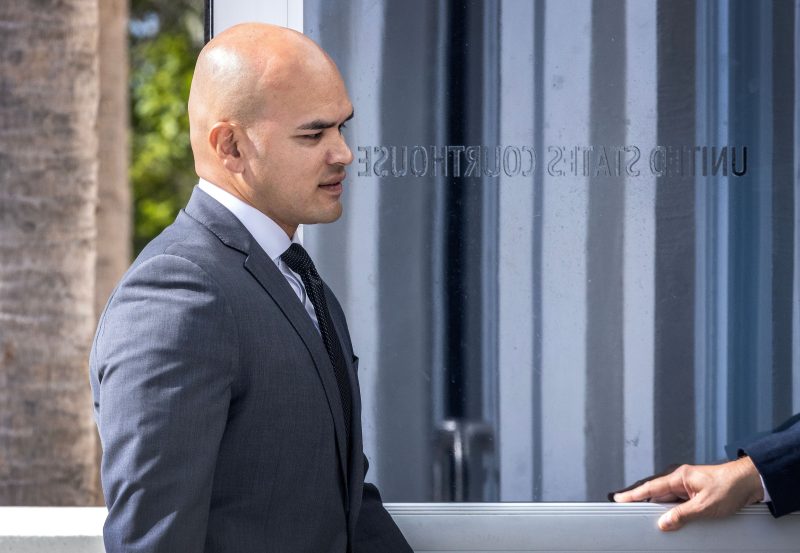
Trump, aide plead not guilty in documents case. De Oliveira does not enter plea.
FORT PIERCE, Fla. — Donald Trump and one of his two co-defendants on Thursday pleaded not guilty in federal court to multiple charges alleging that the former president kept classified documents at his Florida property and, with the help of aides, tried to hide some of the material from government officials seeking to get it back.
Trump entered his plea through his defense team and was not present at the hearing. Federal prosecutors had initially accused him of committing 37 crimes in an indictment filed in June, and he pleaded not guilty. Prosecutors added three additional charges in a July superseding indictment. Trump pleaded not guilty Thursday to those charges through his attorney Todd Blanche.
Waltine “Walt” Nauta, Trump’s aide, attended the Thursday court hearing and also pleaded not guilty. He faced six charges in the initial indictment alongside Trump and was charged with two additional crimes in the superseding indictment.
The third defendant, Carlos De Oliveira, property manager at Trump’s Mar-a-Lago resort in Florida, was charged for the first time in the superseding indictment. He was expected to enter his plea to four counts Thursday for his alleged role in a scheme with Trump and Nauta to try to delete security footage that revealed Mar-a-Lago workers moving boxes of government materials that federal officials had already demanded be returned.
De Oliveira was not arraigned because a Florida-based attorney had not yet notified the court that he is representing De Oliveira — a requirement for arraignments in South Florida federal courts.
De Oliveira had a Florida-based criminal defense attorney with him at the hearing: Donnie Murrell. U.S. Magistrate Judge Shaniek Maynard said during the 10-minute proceeding that she could not accept a plea until Murrell filed notice with the court that he was representing De Oliveira.
Murrell said he was nearly ready to file notice. Maynard ordered Murrell and De Oliveira’s Washington-based lawyer, John Irving, to return to court Tuesday to enter a plea on the Trump employee’s behalf.
Later Thursday, Murrell had filed notice to the court that he would be representing De Oliveira.
This was the second time De Oliveira showed up to court but could not be arraigned. He made an initial court appearance in a South Florida courthouse last week but was unable to enter his plea because he did not have a lawyer accredited to practice in Florida.
Federal judges in Florida have prohibited the three defendants from speaking to witnesses about the facts of the investigation as conditions of their release while they await trial.
Led by special counsel Jack Smith, federal prosecutors have accused Trump of 32 counts of illegally retaining national defense information and deceiving investigators. The charges against Nauta and De Oliveira focus on alleged obstruction of the investigation and lying to investigators.
U.S. District Judge Aileen M. Cannon has scheduled the trial to begin in late May.
Trump was indicted on state charges this year in New York and is scheduled to stand trial there in March. Smith’s team also charged Trump this month in a separate case involving his alleged efforts to overturn the results of the 2020 presidential election.
Trump is a candidate to be the 2024 Republican presidential nominee, and his attorneys asked Cannon to take into account his busy campaign schedule.
Cannon set the trial date before prosecutors filed the superseding indictment, and it is still unclear if adding the third co-defendant will delay the case. De Oliveira’s attorneys are weeks behind Trump’s and Nauta’s legal teams in reviewing the government’s evidence as part of the discovery process. Prosecutors have said in court filings that there’s ample time for them to get up to speed.
The documents case will be tried under the rules of the Classified Information Procedures Act, or CIPA — a law that spells out pretrial steps that must be taken to decide what classified information will be used in court and how. Those steps could slow down the discovery process because they can result in more pretrial motions and hearings than a typical case.
Jacobs reported from Fort Pierce and Stein from Washington.
